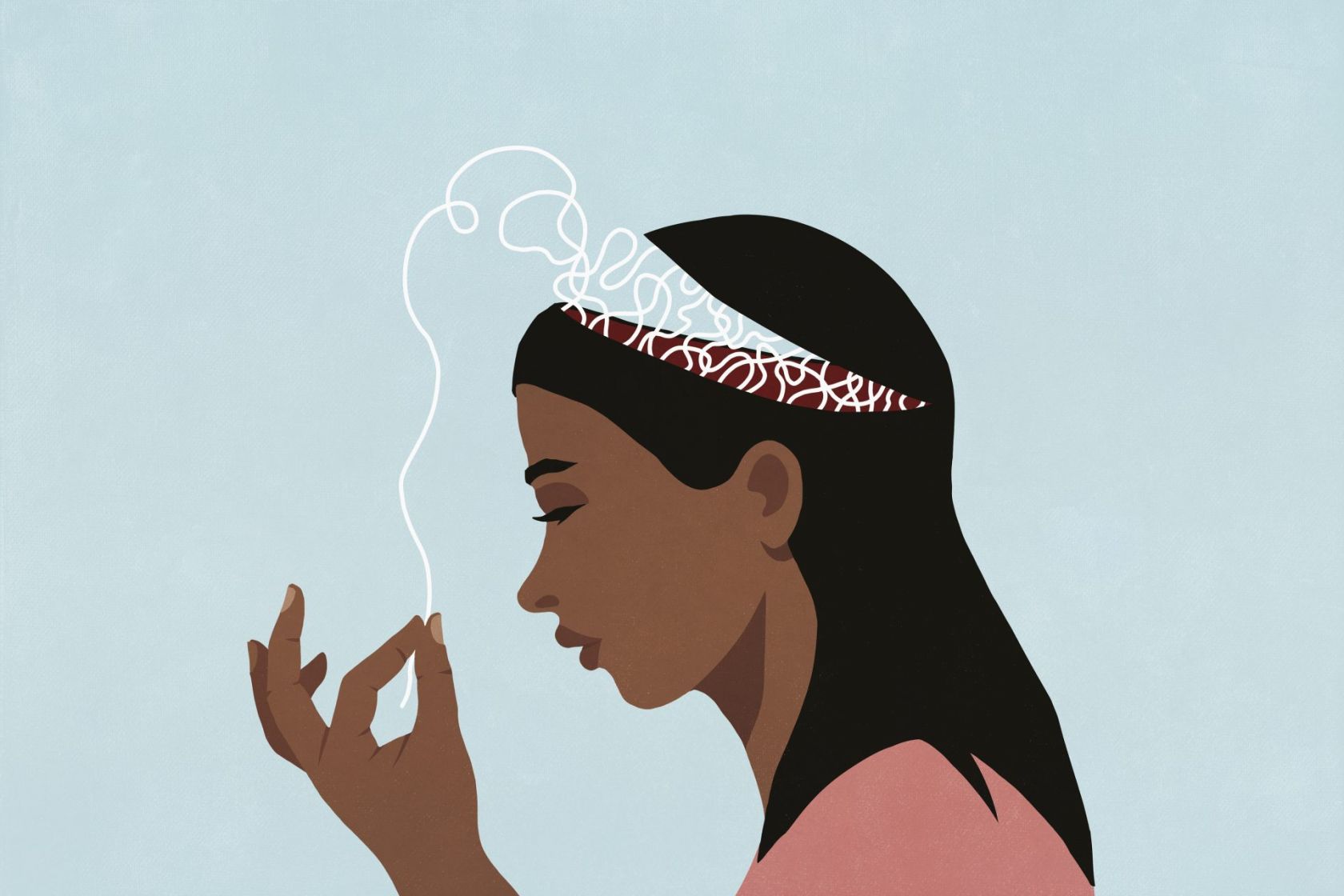Written by Lauren Geall
As Stylist’s digital writer, Lauren Geall writes on topics including mental health, wellbeing and women’s issues. She’s also a big fan of houseplants and likes to dabble in film and TV from time-to-time. You can find her on Twitter at @laurenjanegeall.
The language we use to talk about mental health conditions such as OCD is just as important as the actions we take to destigmatise them. This OCD Awareness Week (9-15 October) Stylist’s digital writer Lauren Geall explains why calling yourself “a bit OCD” is so damaging.
When I tell people I have OCD, they’re often quite surprised.
You see, when people think of Obsessive-Compulsive Disorder (OCD), they think of tidiness. They picture pencils and pens lined up perfectly in order of the rainbow, and kitchen utensils neatly organised into dividers in respective drawers. They think of sparkling white surfaces, colour-coded wardrobes and beautifully neat handwriting.
What they don’t think of is me, sprawled on my bedroom floor among the piles of clothes I’ve tried on that morning, scrolling through Instagram and procrastinating the washing up I still have to do downstairs.
But here I am, a real-life person with what was described upon diagnosis as “severe high-functioning pure OCD,” living a life that’s relatively chaotic compared to the stereotype many people expect.
While I can joke about it now, those stereotypes have a real-world impact: especially when it comes to people using OCD as shorthand for things that aren’t, well, actual OCD.
If you’ve ever heard someone describe themselves as “a bit OCD” you’ll know what I’m talking about. Whether they’re explaining away the thought process behind their perfectly tidy desk space or justifying the introduction of a new organisation system, the phrase “a bit OCD” has snuck into our modern-day vernacular.

But the thing is, there’s no such thing as being “a bit OCD”. Even for those whose OCD manifests as a need to have things tidy and organised, OCD is more than just wanting things a certain way – it’s a disorder characterised by feelings of anxiety and discomfort.
Indeed, OCD is not a preference, or a personality quirk, or a light-hearted reference. OCD is a serious, debilitating disorder that affects over 750,000 people in the UK – and your words have the potential to do more harm than you might expect.
First of all, using OCD as a way to describe a personality quirk not only undermines the severity of the disorder (the risk of death by suicide among people living with OCD has been estimated as 10 times that of the general population), it perpetuates the idea that people living with OCD choose their compulsions, and therefore have the power to stop or restrict them.
But it’s just not as simple as that. The obsessions (and resultant compulsions) experienced by people living with OCD are driven by such intense fear and anxiety that they’re often completely unavoidable.
Take myself, for example. Now, thanks to a combination of antidepressants and CBT therapy, I know how to coach myself through periods of obsession and anxiety (my OCD largely focuses on how I could cause emotional harm to others by harming myself as a result of depression and suicidality).
But even though I have more control over my OCD, I still have times when my condition flares up and my compulsions – which range from flooding myself with positive thoughts of the future (so I can ‘convince’ myself I’m not severely depressed) or making sure I’m never alone “just in case” I suddenly become suicidal – return.
I know these sound irrational (because they are), but that doesn’t stop me from returning to them time and time again. Why? Well, when you’re in the midst of OCD, you don’t trust your own brain; the compulsions seem like the only way to navigate the world safely, and you become consumed by them.
Calling yourself “a bit OCD” in reference to tidiness also undermines the experience of people whose OCD does not fit into those boxes.
Yes, there are people whose OCD does revolve around extreme cleanliness and hygiene (which is often powered by a debilitating fear of illness or dirt, not a simple preference for tidiness), but there are so many other types of OCD people may find themselves living with.
Indeed, people with OCD have been known to check the hob over 100 times just to make sure they’ve turned it off and won’t burn the house down, or struggle with intrusive, unwelcome thoughts about causing harm to others which make them worry about whether they’re an “evil” person, despite being completely repulsed by the thoughts themselves.

The stereotypes associated with OCD can even stand in the way of those of us with the condition from getting diagnosed, because they shape the way society – including the person living with the OCD – sees their symptoms.
In my case, getting a diagnosis was hard because both myself and the people around me had never heard of pure or harm OCD before. My courage to speak to the GP about what I was experiencing only came when I discovered a YouTube video of someone giving a speech about harm OCD.
The video gave me the words I needed to describe my experience to the people around me, describe it to my GP, and the courage to leave that GP (and seek a diagnosis elsewhere) when they refused to listen to me – but it took a lot of research to get to that point.
Let me get this straight: if you’ve used the phrase “a bit OCD” in the past, or slip up and use it in the future, that is completely fine. Before my diagnosis, I used the phrase casually when I laughed about my neat handwriting with friends or joked about choosing a font for my latest school project.
Language grows and evolves as we use it – and the words we use sometimes become second nature to us when we’ve heard them used in the world around us.
But next time you go to call someone “a bit OCD”, I urge you to think about the impact your words could be having. The same applies to all the language we use to describe mental health – the weather is not “bipolar” because it’s a bit all over the place, and you’re not “so depressed” just because something made you feel sad for a day or two.
The language we use to talk about mental health is just as important as the actions we take to destigmatise it – so it’s important that we give them the care and attention they deserve.
If you, or someone you know, is struggling with their mental health or emotional wellbeing, you can find support and resources on the mental health charity Mind’s website and NHS Every Mind Matters or access the NHS’ guide to local mental health helplines and organisations here.
If you are struggling, you can also ask your GP for a referral to NHS Talking Therapies, or you can self-refer.
You can also call the Samaritans in the UK on 116 123 or email [email protected] for confidential support.
Images: Getty
Source: Read Full Article
